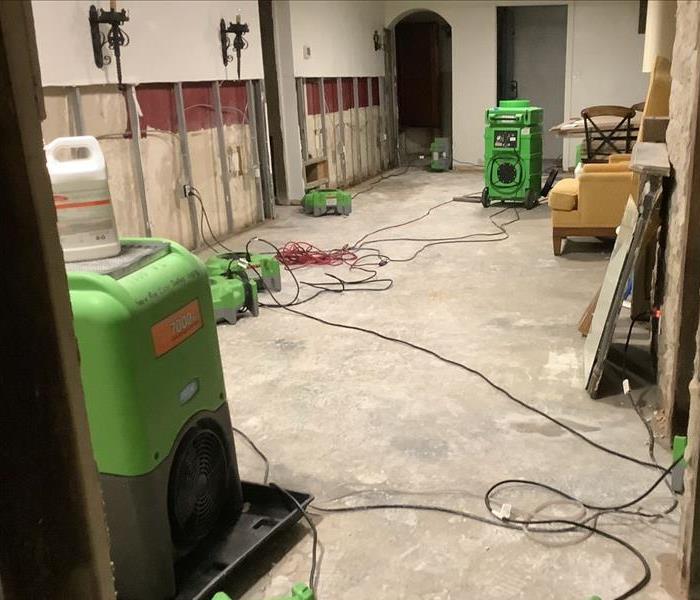SERVPRO of Balch Springs': Fire Damage Tips!
12/15/2023 (Permalink)
Never Leave Cooking Unattended: One of the leading causes of kitchen fires is leaving cooking unattended. Whether you're frying, boiling, or baking, stay in the kitchen and keep a close eye on your food. If you need to leave the kitchen, turn off the stove or oven.
Keep Flammable Items Away: Store flammable items, such as dish towels, oven mitts, and paper towels, away from the stove and other heat sources. These materials can catch fire easily, so maintaining a clear and clutter-free cooking area is crucial.
Regularly Clean Appliances: Grease and food residue can accumulate on kitchen appliances, increasing the risk of fires. Regularly clean your oven, stovetop, toaster, and other cooking appliances to prevent the buildup of flammable materials.
Use Caution with Cooking Oil: Cooking oil poses a high fire risk. Never heat oil to the smoking point, and always use a deep fryer with caution. If a grease fire occurs, never use water to extinguish it. Instead, use a fire extinguisher or smother the flames with a metal lid.
Install a Smoke Detector: Ensure your kitchen is equipped with a working smoke detector. Regularly test the detector to confirm it's functioning correctly, and replace the batteries as needed. A smoke detector can provide early warning in case of a fire.
Invest in a Fire Extinguisher: Keep a fire extinguisher in an easily accessible location in your kitchen. Make sure you know how to use it, and check the expiration date regularly. A small fire extinguisher can make a big difference in containing a kitchen fire before it spreads.
Check Electrical Appliances: Inspect your electrical appliances for frayed cords, damaged plugs, or any signs of wear. Replace or repair any damaged appliances immediately. Faulty electrical equipment can be a significant fire hazard.
Practice Safe Cooking Habits: When cooking, use safe habits such as turning pot handles inward to prevent accidental spills, and use caution when working with hot surfaces. Teach children about kitchen safety, and keep them away from the stove and other cooking appliances.
Create a Fire Escape Plan: In the event of a kitchen fire, having a well-thought-out escape plan is crucial. Ensure everyone in the household knows the plan and practice it regularly. Designate a meeting point outside the home.
Know How to Handle Different Types of Fires: Different fires require different approaches for safe extinguishing. Familiarize yourself with the proper techniques for putting out fires involving grease, electrical equipment, and other kitchen elements. Understanding the appropriate response can prevent a small incident from escalating.




 24/7 Emergency Service
24/7 Emergency Service
